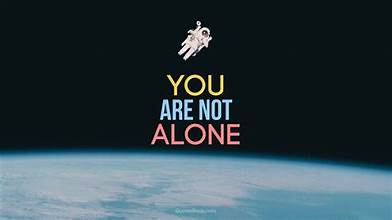Introduction:
- Highlight the significance of having a support system and knowing that help is available in challenging times.
- Introduce the idea that, even in difficult situations, there are resources and people ready to provide assistance.
- Discuss the importance of self-awareness and recognizing when you may need help.
- Address common signs and signals that indicate it’s time to seek support, both in personal and professional aspects of life.

Table of Contents
The Importance of Support and Help(help is on the way)
In life’s journey, there are moments when we all need a helping hand, a kind word, or a guiding light. This article is a testament to the idea that you are not alone in your struggles; help on the way. It is a reminder that there is a robust network of support, both formal and informal, waiting to embrace and assist you.help is on the way
Recognizing When You Need Help
One of the first steps toward seeking help is recognizing when you need it. Self-awareness is key.help is on the way We will explore the various signs and signals that indicate it might be time to reach out. Whether you’re facing personal or professional challenges, knowing when to ask for support is a crucial skill.
Different Forms of Help and Support
Help comes in many forms. It can be emotional, mental, physical,help is on the way or practical. We’ll discuss these diverse forms of support and emphasize that help can be found in various places, from your closest relationships to professional services.help is on the way
Mental Health and Emotional Support
Mental health and emotional well-being are vital aspects of our lives. We’ll delve into why it’s essential to prioritize mental health, the role of therapy, counseling, and the significance of simply talking to someone about your feelings and struggles. Recognizing the value of emotional support is the first step to seeking it.
Seeking Professional Help
One of the biggest hurdles to seeking help can be the stigma attached to it, especially in the context of mental health. We’ll address this issue and emphasize the value of seeking professional help when necessary. Mental health professionals are trained to provide guidance, support, and treatment for a range of challenges.help is on the way
Community and Peer Support
Human connection is a powerful force. We’ll explore the significance of community and peer support networks. Whether it’s a local support group, an online community, or a gathering of like-minded individuals, the sense of belonging and shared experiences can be immensely comforting.help is on the way
Resources and Helplines
In times of crisis, immediate help can be essential.help is on the way We will provide information on available resources, including crisis hotlines, local support groups, and online communities. Understanding where to turn during a crisis can be a lifeline.help is on the way
The Role of Friends and Family
Our loved ones play a crucial role in our lives. Open communication with friends and family is key when seeking help. We will discuss how these relationships can provide essential support and the importance of sharing our struggles with those close to us.
Empowerment and Self-Help
While seeking external help is valuable, self-empowerment and self-help resources are equally significant. We will explore strategies and tools for self-improvement and coping with challenges independently. Sometimes, the most profound change begins within.
Conclusion: A Message of Hope and Connection
In closing, this article sends a message of hope and connection. It is a reminder that, in times of difficulty help is on the way, you are not alone. Help is not a distant concept but a tangible reality. Encouragement to seek help, connect with support systems, and embrace the idea that, no matter how dark the times, you are not alone. Together, we can find strength in our vulnerability and create a world where help is always on the way.
FAQs
Q1: How do I know when I need help or support?
- A1: Recognizing when you need help is a crucial first step. Signs may include feeling overwhelmed, anxious, or isolated. If your challenges impact your well-being or daily life, it’s a good indicator that reaching out for support is a wise decision.
Q2: What are the different types of support available when I need help?
- A2: Support can come in various forms, including emotional support from friends and family, mental health support from therapists or counselors, physical help with tasks, and practical support like advice or resources for specific challenges.
Q3: Is it okay to ask for help, especially for mental health concerns?
- A3: Absolutely. Asking for help, especially for mental health concerns, is a sign of strength and self-awareness. There is no shame in seeking assistance when it comes to your mental and emotional well-being.
Q4: What is the role of mental health professionals in providing support?
- A4: Mental health professionals, including therapists and counselors, are trained to provide guidance, support, and treatment for a wide range of mental health challenges. They play a crucial role in helping individuals navigate and overcome their struggles.
Q5: How can I find local support groups or communities for assistance?
- A5: You can often find local support groups or communities by searching online, asking your healthcare provider for recommendations, or contacting local organizations. Social media platforms and community centers can also be valuable resources.
Q6: What are crisis hotlines, and how can I access them in times of need?
- A6: Crisis hotlines are helplines that provide immediate support in times of crisis. They are typically toll-free and confidential. You can access them by calling the provided phone number, and operators are trained to assist with various crises.
Q7: How can I open up to friends and family about my struggles and need for help?
- A7: Open and honest communication is key. Choose a comfortable setting, express your feelings and needs clearly, and be receptive to their support and suggestions. Often, loved ones want to help but may not know how unless you share your challenges with them.
Q8: What are some self-help strategies for coping with challenges independently?
- A8: Self-help strategies can include self-reflection, setting achievable goals, practicing self-compassion, engaging in relaxation techniques, and utilizing self-help books, apps, or online resources. Building a support network, even if it starts with yourself, is essential.
Q9: Is it possible to find hope and connection in times of difficulty?
- A9: Absolutely. Hope and connection are often found in the darkest times. Seeking help, talking to someone who cares, and connecting with support systems can be transformative. You are not alone, and together, we can overcome challenges.
Q10: Where can I find more information on seeking help and support?
- A10: You can find more information by reaching out to local mental health organizations, healthcare providers, and community centers. Additionally, there are numerous online resources, articles, and helplines dedicated to providing guidance on seeking help and support.
 Nextezone: Igniting Tomorrow's Potential with Innovation Today Innovate. Explore. Elevate. Nextezone – Where Vision Meets Innovation.
Nextezone: Igniting Tomorrow's Potential with Innovation Today Innovate. Explore. Elevate. Nextezone – Where Vision Meets Innovation.
